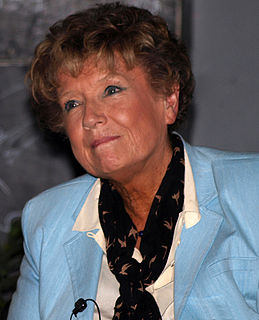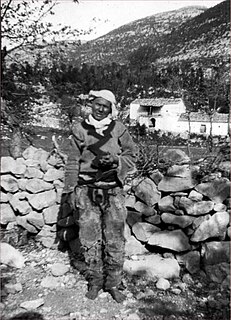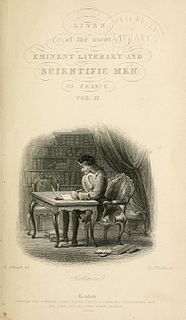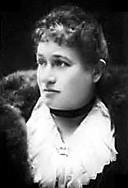
Sidonie-Gabrielle Colette, known mononymously as Colette, was a French author and woman of letters. She was nominated for the Nobel Prize in Literature in 1948, and was also known as a mime, actress, and journalist. Colette is best remembered for her 1944 novella Gigi, which was the basis for the 1958 film and the 1973 stage production of the same name.

Grazia Maria Cosima Damiana Deledda, also known in Sardinian language as Gràssia or Gràtzia Deledda, was an Italian writer who received the Nobel Prize for Literature in 1926 "for her idealistically inspired writings which with plastic clarity picture the life on her native island [i.e. Sardinia] and with depth and sympathy deal with human problems in general". She was the first Italian woman to receive the prize, and only the second woman in general after Selma Lagerlöf was awarded hers in 1909.

Luigi Pirandello was an Italian dramatist, novelist, poet, and short story writer whose greatest contributions were his plays. He was awarded the 1934 Nobel Prize in Literature for "his almost magical power to turn psychological analysis into good theatre." Pirandello's works include novels, hundreds of short stories, and about 40 plays, some of which are written in Sicilian. Pirandello's tragic farces are often seen as forerunners of the Theatre of the Absurd.

Leonardo Sciascia was an Italian writer, novelist, essayist, playwright, and politician. Some of his works have been made into films, including Porte Aperte, Cadaveri Eccellenti, and Il giorno della civetta.

Rachilde was the pen name and preferred identity of novelist and playwright Marguerite Vallette-Eymery. Born near Périgueux, Dordogne, Aquitaine, France during the Second French Empire, Rachilde went on to become a symbolist author and the most prominent woman in literature associated with the Decadent Movement of fin de siècle France.
The Music of Sicily refers to music created by peoples from the isle of Sicily. It was shaped by the island's history, from the island's great presence as part of Magna Grecia 2,500 years ago, through various historical incarnations as a part of the Roman Empire, then an integral part of the Kingdom of Sicily, and, finally, as an autonomous region of the modern nation state of Italy.

The Sicilian School was a small community of Sicilian and mainland Italian poets gathered around Frederick II, most of them belonging to his imperial court. Headed by Giacomo da Lentini, they produced more than three-hundred poems of courtly love between 1230 and 1266, the experiment being continued after Frederick's death by his son, Manfred.

Walter III of Brienne was a nobleman from northern France. Becoming Count of Brienne in 1191, Walter married the Sicilian princess Elvira and took an army to southern Italy to claim her inheritance. He became Prince of Taranto in her right in 1201 but died fighting before he could establish himself as King of Sicily.

Luigi Capuana was an Italian author and journalist and one of the most important members of the verist movement. He was a contemporary of Giovanni Verga, both having been born in the province of Catania within a year of each other. He was also one of the first Italian authors influenced by the works of Émile Zola, French author and creator of naturalism. Capuana also wrote poetry in Sicilian, of which an example appears below.

Sarah Grand was an Irish feminist writer active from 1873 to 1922. Her work revolved around the New Woman ideal.

The Fasci Siciliani[ˈfaʃʃi sitʃiˈljani], short for Fasci Siciliani dei Lavoratori, were a popular movement of democratic and socialist inspiration, which arose in Sicily in the years between 1889 and 1894. The Fasci gained the support of the poorest and most exploited classes of the island by channeling their frustration and discontent into a coherent programme based on the establishment of new rights. Consisting of a jumble of traditionalist sentiment, religiosity, and socialist consciousness, the movement reached its apex in the summer of 1893, when new conditions were presented to the landowners and mine owners of Sicily concerning the renewal of sharecropping and rental contracts.
L'Esclusa was Luigi Pirandello's first novel. Written in 1893 with the title Marta Ajala, it was originally published in episodes in the Roman newspaper La Tribuna from June 29 to August 16, 1901, with the definitive title L'Esclusa. It was finally republished in single volume in 1908 in Milan by the Fratelli Treves. In this edition, a letter dedicated to Luigi Capuana was also published in which the author expressed his concerns that the "humoristic foundation" of the novel might have escaped those who had read the newspaper version. He also points out that "every will is excluded, even though the characters are left with the full illusion that they are acting voluntarily." He added that "nature, without any apparent order, bristling with contradictions is often extremely remote from the work of art..." which almost always arbitrarily harmonizes and rationalizes reality.
Italian folk music has a deep and complex history. National unification came quite late to the Italian peninsula, so its many hundreds of separate cultures remained un-homogenized until quite recently compared to many other European countries. Moreover, Italian folk music reflects Italy's geographic position at the south of Europe and in the center of the Mediterranean Sea: Arabic, African, Celtic, Persian, and Slavic influences are readily apparent in the musical styles of the Italian regions. Italy's rough geography and the historic dominance of small city states has allowed quite diverse musical styles to coexist in close proximity.

Dacia Maraini is an Italian writer. Maraini's work focuses on women’s issues, and she has written numerous plays and novels. She has won awards for her work, including the Formentor Prize for L'età del malessere (1963); the Premio Fregene for Isolina (1985); the Premio Campiello and Book of the Year Award for La lunga vita di Marianna Ucrìa (1990); and the Premio Strega for Buio (1999). In 2013, Irish Braschi's biographical documentary I Was Born Travelling told the story of her life, focusing in particular on her imprisonment in a concentration camp in Japan during World War II and the journeys she made around the world with her partner Alberto Moravia and close friends Pier Paolo Pasolini and Maria Callas.

Balkan sworn virgins are women who take a vow of chastity and wear male clothing in order to live as men in patriarchal northern Albanian society, Kosovo and Montenegro. To a lesser extent, the practice exists, or has existed, in other parts of the western Balkans, including Bosnia, Dalmatia (Croatia), Serbia and Northern Macedonia. National Geographic's Taboo (2002) estimated that there were fewer than 102 Albanian sworn virgins left.

The Lives of the Most Eminent Literary and Scientific Men comprised ten volumes of Dionysius Lardner's 133-volume Cabinet Cyclopaedia (1829–46). Aimed at the self-educating middle class, this encyclopedia was written during the 19th-century literary revolution in Britain that encouraged more people to read.
Franca Viola is an Italian woman who became famous in the 1960s in Italy for refusing a "rehabilitating marriage" with her attacker after being kidnapped and raped. She was one of the first Italian women who had been raped to publicly refuse to marry her rapist. Instead, she and her family successfully appealed to the law to prosecute the rapist. The trial had a wide resonance in Italy, as Viola's behavior clashed with the traditional social conventions in Southern Italy, whereby a woman would lose her honour if she did not marry the man to whom she lost her virginity. Franca Viola thus became a symbol of the cultural progress and the emancipation of women in post-war Italy.

The Sicilian Girl is a 2008 Italian film directed by Marco Amenta. The film is inspired by the story of Rita Atria, a key witness in a major Mafia investigation in Sicily.

Carmen de Burgos y Seguí was a Spanish journalist, writer, translator and women's rights activist. Johnson describes her as a "modern" if not "modernist" writer.

Maria Antonietta Torriani was an Italian journalist and fiction writer. Much of her work was published under the pen name Marchesa Colombi, a character in the comedy La satira e Parini by Paolo Ferrari.
















